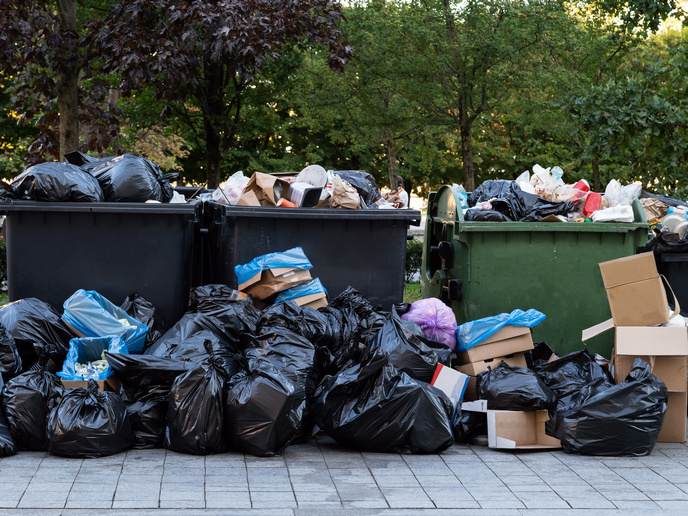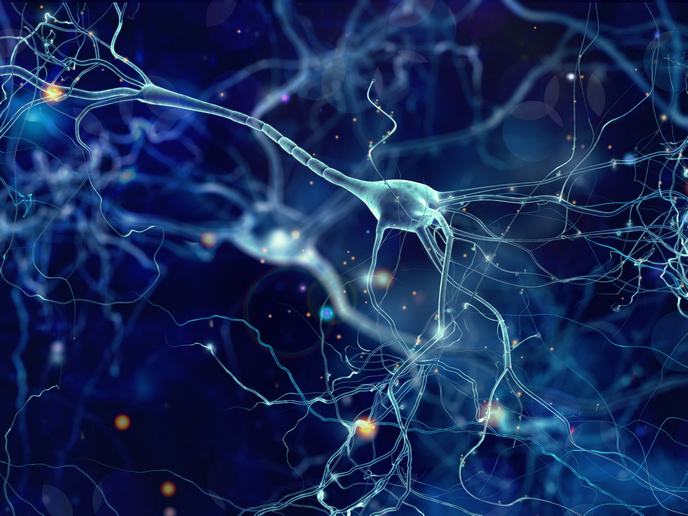Autophagy: the cell’s waste disposal system
When municipal waste isn’t regularly picked up, it accumulates, eventually spilling into the streets and disrupting the day-to-day functioning of the city. The same thing happens in our cells. “When a cell’s waste isn’t removed, they can no longer function,” says Claudine Kraft(opens in new window), a researcher at the University of Freiburg(opens in new window). “Eventually, the damage can become so great that the cells end up dying.” While the body may not have a garbage truck, it does have autophagy. “Autophagy is essentially the cell’s waste disposal system,” adds Kraft. “During autophagy, cells enclose the waste in membranes, breaking it down into its basic building blocks that can then be reused.” However, like any machinery, sometimes autophagy malfunctions. When it does, the result can be the development of such diseases as Alzheimer’s, Parkinson’s or cancer. Despite the critical role autophagy plays, scientists know surprisingly little about the process. The EU-funded AutoClean project intends to change that. “Our goal is to find out how cells initiate and regulate autophagy,” explains Kraft, who serves as the project’s principal researcher. The project received support from the European Research Council(opens in new window).
Rebuilding autophagy from the bottom up
To do so, the project’s multidisciplinary team rebuilt autophagy from the bottom up using synthetic biology, purified components and cell fractions. “We reconstituted critical steps across the entire autography process, from the initial assembly of autophagy machinery to the final step of autophagosome-vacuole fusion,” notes Kraft. What they found was that Atg1/ULK1 kinase-mediated phosphorylation is not limited to a single checkpoint but orchestrates multiple stages of autophagy, from early initiation to later steps in the pathway. Atg1/ULK1 kinase is an enzyme that initiates autophagy. Phosphorylation is a biochemical process where kinase adds a phosphate group to a molecule, significantly altering the molecule’s structure and function. The project also discovered phase separations (a process where a homogeneous mixture separates into distinct, coexisting phases like oil in water) that build protein-based initiation hubs capable of guiding spatial organisation during autophagy.
Uncovering autophagy’s disease-fighting potential
The AutoClean project has significantly advanced the autophagy field by introducing new concepts such as avidity-driven clustering and phase-separating initiation hubs as key mechanisms in autophagy, which are likely also key concepts in other cellular pathways. Furthermore, by reconstructing how autophagy can be initiated and controlled at the molecular level, the project provides actionable insights into how this process could be modulated in aggregate-related diseases, potentially guiding future therapeutic development. “Autophagy is vital for cellular health, and its dysregulation is linked to diseases such as neurodegeneration, infections and cancer,” concludes Kraft. “Our research opens up possibilities for manipulating autophagy to degrade disease-causing aggregates or organelles.” Kraft and her team plan to further build on the project’s work by applying its modular systems to explore and therapeutically target initiation hubs and autophagy in aggregation-related diseases. In doing so, they hope to develop intervention strategies that restore or enhance selective degradation mechanisms. In addition to its research and findings, the project also contributed to fostering a more inclusive scientific community. For instance, Kraft’s involvement in the Women in Autophagy(opens in new window) (WIA) initiative continues to empower women and other under-represented gender identities in the field of autophagy.







